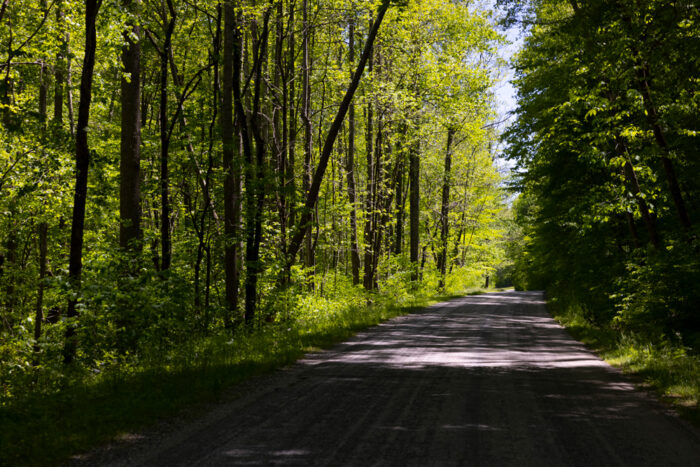Piling on: Fresh off a pipeline win, a rural Virginia community now faces the threat of gold mining
Some members of the Buckingham County community who helped fight the Atlantic Coast Pipeline are being forced to take on industrial metals mining
Residents of rural Virginia communities now recognized internationally for winning an unprecedented battle against the Atlantic Coast Pipeline and its polluting compressor station in 2020 barely had time to celebrate their historic victory before new environmental justice concerns emerged.
Ruby Laury of the Union Hill community says, “It was like deja vu,” upon learning a Canadian company was conducting exploratory drilling for gold in nearby and beloved Buckingham County forestland.
Aston Bay Holdings Ltd., a mineral exploration company, started exploring for gold in Buckingham in 2019 and has since expanded its search for metals into additional areas of Virginia. While the last gold-producing mine in Virginia closed in 1947, the environmental and public health impacts from gold mines in the U.S. are well known and widely reported.
Learn more about the potential impacts of mining.
A morning of listening to longtime members of the Buckingham community share fond memories revealed just how much there is to love about the place, and the quality of life that’s at stake with the latest environmental and public health threat.
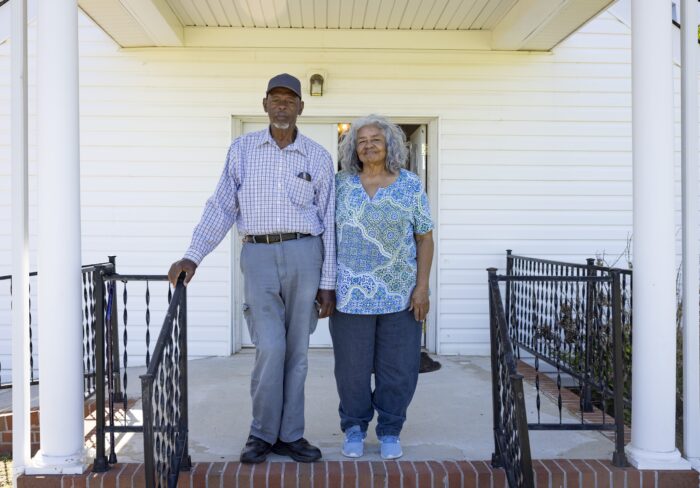
Joyful memories of picking handfuls of huckleberries, neighborhood games of pickup football played in wide open spaces, and country roads lined with parked cars for annual church revivals each summer are clouded by fears—not only of the threats posed by potential gold mining activity, but also that the community will continue to be a draw for polluting industries.
Standing by Warminster Church, off a road with the same name and near the field where his friends used to score impromptu touchdowns, Deacon William Perkins points to the church’s newly drilled drinking water well. The well’s water level dropped tremendously once exploratory drilling began, and the church replaced the well.
“The well is working fine now, but it cost us,” he says.
Impacts of gold mining on public health and the environment
Virginia has no experience with modern, industrial-scale gold mining, and current efforts to reintroduce this extractive industry are being met with caution and protest.
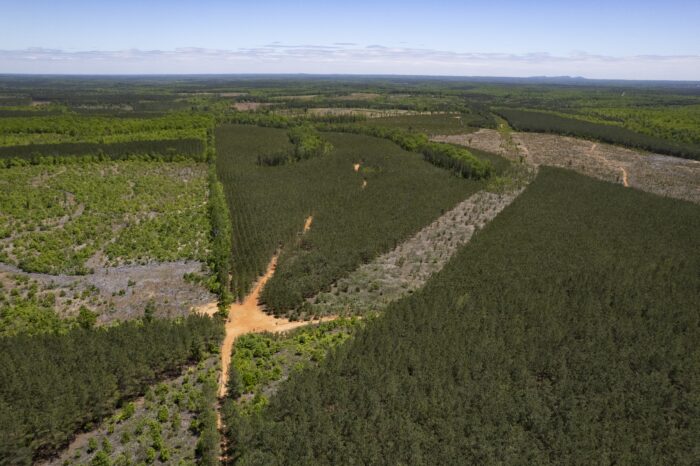
One threat is the common use of cyanide in the gold extraction process. Even small amounts are lethal to humans and sub-lethal exposures may cause Parkinson’s disease and other neurological disorders. While it is not clear if cyanide would be used to extract gold in Virginia, the risks that come with its use must be made clear.
The Southern Environmental Law Center also has experience dealing with the impacts of industrial gold mining in other Southeastern states. In South Carolina, the Haile Gold Mine has had multiple water quality violations, including releasing excessive amounts of the toxic metal thallium into a nearby creek in 2020. SELC has reached two settlements with the mining company to help mitigate and compensate for the threats associated with the mining activities.
We applaud the residents in Buckingham County and elsewhere who are fighting to raise these concerns and protect their drinking water.
Attorney Carroll Courtenay
In Virginia, HB 2213 directs multiple state agencies to conduct a study evaluating the potential impacts of gold mining in the Commonwealth, with an emphasis on public health, safety, and welfare. The Virginia Department of Energy contracted with the National Academies of Sciences, Engineering and Medicine to produce a majority of the study.
“This study won’t be finished until winter, but the impacts of industrial gold mining aren’t a secret. We know that other communities, both in the United States and around the world, have suffered long-term, negative impacts to their environment and public health from industrial gold mining operations. We applaud the residents in Buckingham County and elsewhere who are fighting to raise these concerns and protect their drinking water,” says Staff Attorney Carroll Courtenay.
SELC, in partnership with the Chesapeake Bay Foundation, submitted comments to NASEM on the potential impacts of gold mining in Virginia, and the Virginia Department of Energy is expected to release the final required study on gold mining in December.
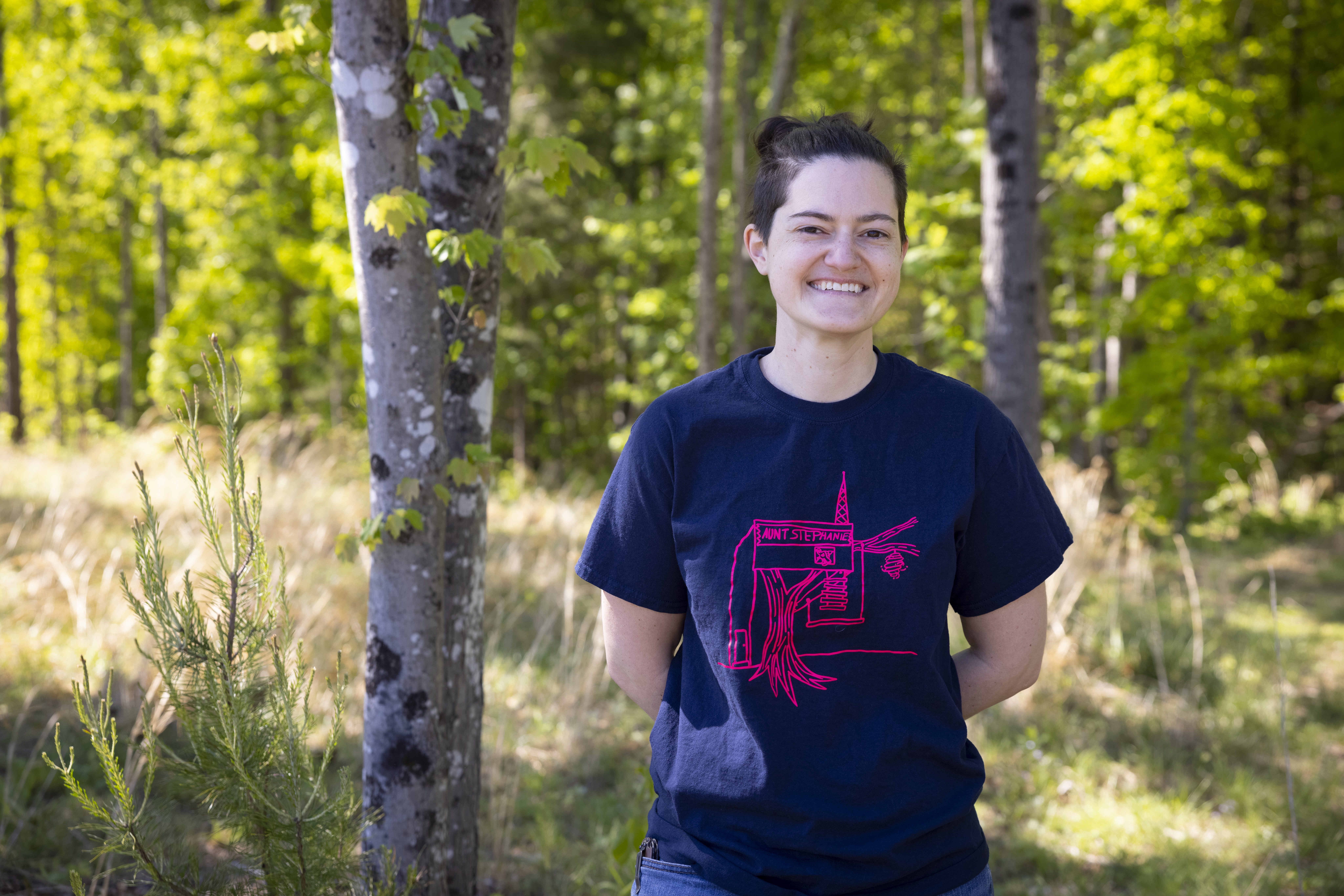
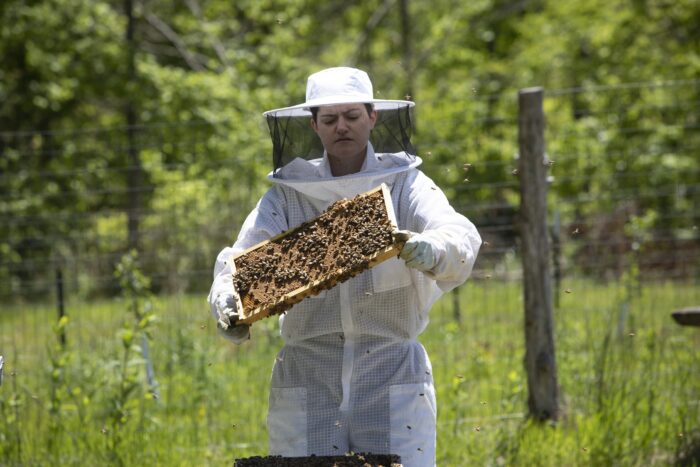
Community impact
Research shows polluting industries and facilities are more likely to be situated in communities of color and lower wealth communities. At Warminster Church, Deacon William Perkins puts it plainly: “They’re not concerned about us… It feels like we’re being cheated out of our land. It feels like we are less than,” he says of officials from mining company Aston Bay. “Buckingham County’s people—we’re nothing compared to them making money off drilling for gold.”
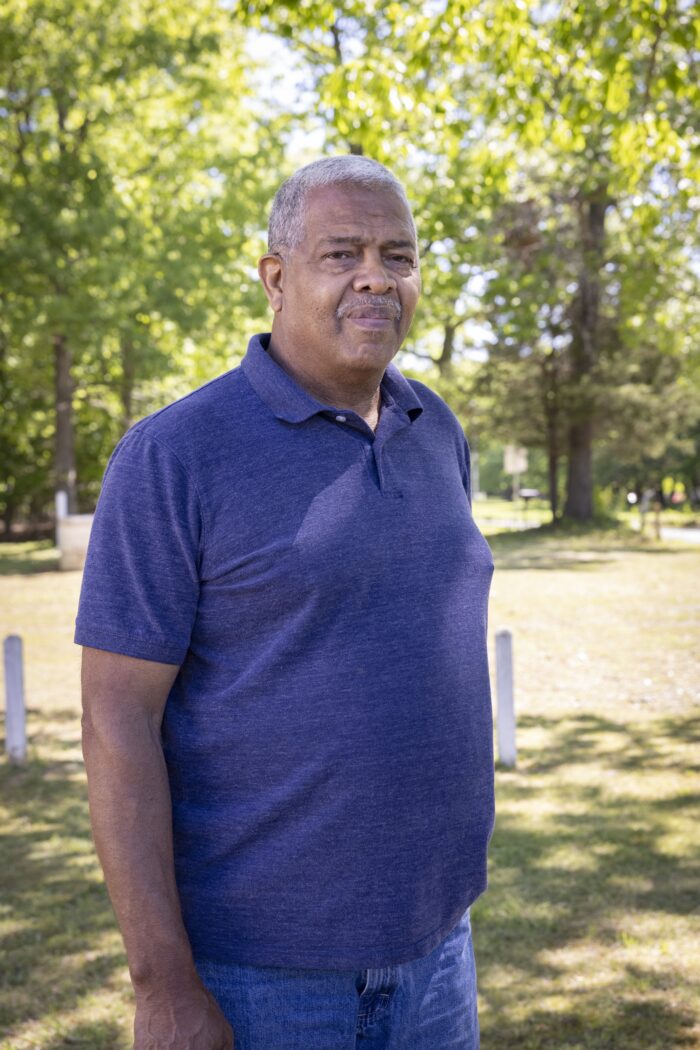
His sister, Florence Carr, who still lives in their nearby childhood home, adds, “I got a garden going now, but I wouldn’t be able to do any of that if they came through mining and drilling. The air and soil would be poisoned.”
The siblings are part of a larger community of residents raising concern about the potential impacts of gold and other metals mining in their community, including grassroots group Friends of Buckingham, whose advocacy played a major role in the cancellation of the Atlantic Coast Pipeline.
Stephanie Rinaldi, co-leader of Friends of Buckingham’s gold committee, says many people living in the rural county in central Virginia aren’t aware of the ongoing drilling. She finds the ones who are aware oppose it.
Rinaldi lives about a mile from Aston Bay’s exploratory drilling site, her property nearly backing up to where the company plans to conduct its core sampling, she says.
“We don’t want that here. I have my dog and my bees and our garden, on top of the drinking water issue,” says Rinaldi. “All of that would be ruined.”
Taking action
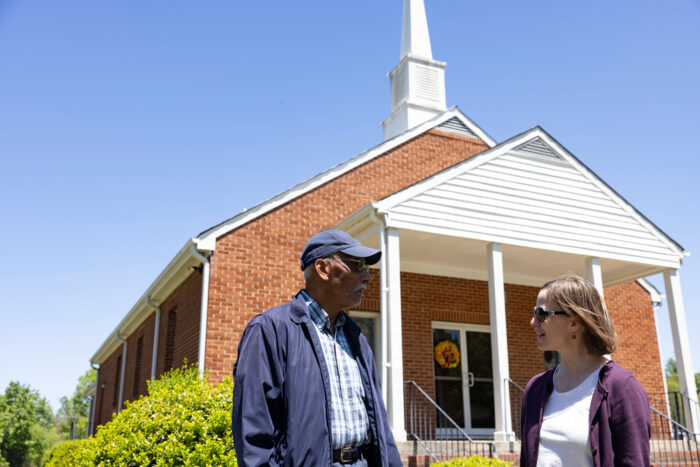
“Buckingham County is just one example of the many communities—both in and downstream of Virginia’s Gold-Pyrite Belt—that may be impacted by gold mining,” says Courtenay. “It’s critical that state officials listen to community concerns and thoroughly assess potential impacts when evaluating metals mining’s place in Virginia.”
In addition to weighing in on the state agencies’ gold mining study, local organizers in Buckingham County are also circulating a petition for a community rights ordinance in an effort to protect the health, safety, and general welfare of residents. They’re more than halfway to their goal of collecting 1,000 signatures to present to the Board of Supervisors, says Deacon Harvey Shelton of Jerusalem Baptist Church, another one of Buckingham’s places of worship. His grandfather bought the 75-acre property where the church sits in 1874 for $360.
“Gold mining would change the character of our community, and pollute our clean water and environment,” Deacon Shelton says.
